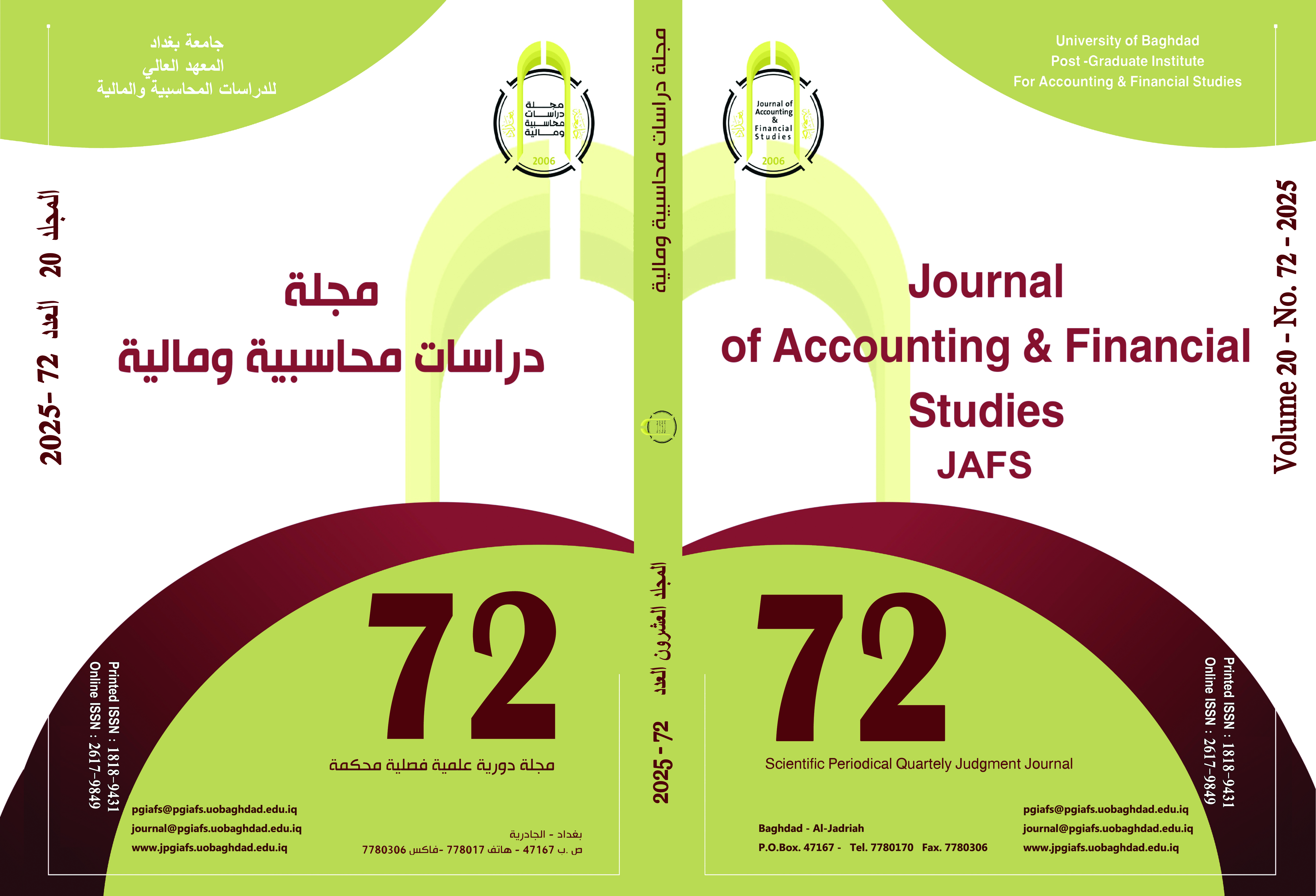research name the impact of analyzing international financial reporting standards on the quality of accounting information in private Iraqi banks
DOI:
https://doi.org/10.34093/v8edth02Keywords:
International Financial Reporting Standards, Quality of accounting informationAbstract
Knowledge and experience play an important role in analyzing, interpreting and applying the International Financial Reporting Standards (IFRS). Accountants and auditors may face difficulties in adopting international accounting standards due to their lack of understanding of them and their weak professional culture. This negatively affects the quality of accounting information. This study aims to discuss and analyze international financial reporting standards and to show the impact of analyzing international financial reporting standards on the comprehension of accountants and their reflection on the quality of accounting information. One hypothesis was formulated that there is a direct statistically significant impact of analyzing financial reporting standards on the quality of accounting information. To achieve the study objective, a questionnaire was designed and consisted of two axes: - The first axis included twenty-two questions dedicated to measuring the analysis of international financial reporting standards, and the second axis included fifteen questions dedicated to measuring the quality of accounting information. 162 questionnaires were distributed to the study sample members, who are accountants in the private Iraqi banks, numbering (12) banks, representing a group of banks included in the banking sector, numbering (46) banks. The SPSS statistical program was used to enter the initial data. One of the most important conclusions reached by the researcher is that the difference in the interpretation of the International Financial Reporting Standards (IFRS) in different countries, this certainly conflicts with the main goal of the International Accounting Standards Board (IASB) which is the international coordination of accounting practices, and these results are supposed to attract the attention of accounting standard setters to reduce the repetition of these ambiguous expressions in new versions or future revisions of the International Financial Reporting Standards (IFRS). The development and training of accountants is one of the basic advantages of quality, as developing accountants towards understanding what the user aims to do will improve the quality of accounting information. The application of the International Financial Reporting Standards (IFRS) and obtaining higher quality financial information depends on the person who undertakes the implementation and application process, i.e. the information producer (accountant), when the information producer (accountant) is able to analyze, interpret and understand the international accounting standards, he will provide accounting information of high quality. Among the most important recommendations reached by the researcher is the need to coordinate on creating a local professional body representing the Federal Financial Supervision Bureau and the Professional Council to answer all cases that require interpretation and to contact the IASB about any case that could be controversial. The need to hold seminars and workshops for accountants working in the banking sector to improve the level of understanding of financial reporting standards.
Downloads
Published
Issue
Section
License
The copyright is transferred to the journal when the researcher is notified of the acceptance of his research submitted for publication in the journal.



